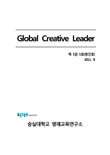발달장애성인의 국내 · 외 고등교육 프로그램 비교
A Comparative Study On the Higher education - Program for adult student with developmental disability in Korea and Overseas
- 숭실대학교 영재교육연구소
- 교육과학습: Global Creative Leader
- 제1권 1호
-
2011.0837 - 55 (19 pages)
- 524

본 연구는 교육과 재활의 기회의 사각지대에 있는 발달장애성인들의 삶의 질향상을 위한 고등교육의 국내동향을 비교분석하였다. 국내외 발달장애성인의 고등교육은 두 가지 유사점을 발견하였다. 첫째, 국내외 발달장애성인의 고등교육의 대상 연령이 대체로 18-30세 수준이다. 둘째, 국내외 발달장애성인의 고등교육의 성격은 대체로 직업재활을 위한 프로그램이다. 국내외 발달장애성인의 고등교육 방향의 세 가지 차이점을 발견하였다. 첫째, 국외 발달장애성인의 고등교육은 대학주도형으로 이뤄지고 있고, 국내 발달장애성인의 고등교육은 평생교육원 또는 사회복지평생교육시설주도형으로 이뤄지고 있다. 둘째, 국외 발달장애성인의 고등교육은 정부의 적극적인 지원이 이뤄지고 있지만, 국내는 정부의 지원이 역부족하다. 셋째, 국외 발달장애성인의 고등교육은 대학중심의 학문보완교육과 자아실현과정으로 진행되고 있지만, 국내는 주로 사회복지관중심의 생활중심교육과정과 직업준비과정으로 진행되고 있다.
This research is about the finding a relationship that how teacher's communication skills and adult student's self-leadership skills are correlated to a student's continuing education satisfaction. The research has shown that the teacher, who has continually educated and learned, has above average communication skills than their adult students. Furthermore, the teacher's language, physical, and adaptation skills are shown extremely high. The adult student's self-leadership skills are fairly good however, the study has indicated that the adult student's strategic skill is relatively low. In detail, their intelligence strategy is better than their behavioral strategy. Furthermore, the survey tells that student's self-leadership skills are indirectly connected to their education satisfaction. However, student's self-leadership skills are also the critical factor to their continuing education success and satisfaction.
요약
Ⅰ. 들어가며
Ⅱ. 발달장애성인 학습자의 특성
Ⅲ. 발달장애성인 학습자와 고등교육
Ⅳ. 논의 및 결론
<참고문헌>
<Abstract>
(0)
(0)